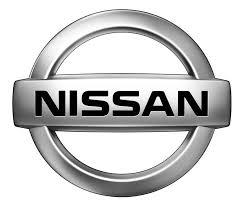Quest V6-3.5L (VQ35DE) (2009)
/Page-178001.png)
Alignment: Service and Repair
Front Suspension
FRONT SUSPENSION ASSEMBLY
Front Wheel Alignment
DESCRIPTION
NOTE:
Before checking the front wheel alignment, be sure to make a preliminary inspection (Unladen*).
*: Fuel, engine coolant and engine oil full. Spare tire, jack, hand tools and mats in designated positions.
PRELIMINARY INSPECTION
-
Check the tires for wear and improper inflation. Refer to See: Wheels and Tires/Tires/Specifications.
-
Check the wheel runout. Refer to See: Wheels and Tires/Wheels/Testing and Inspection.
-
Check the front wheel bearings for looseness. Refer to See: Wheels and Tires/Wheel Hub/Testing and Inspection/Front Wheel Hub And Knuckle.
-
Check the front suspension for looseness. Refer to See: Steering and Suspension/Suspension/Service and Repair/Procedures/Front Suspension
Assembly.
-
Check the steering linkage for looseness. Refer to See: Steering and Suspension/Steering/Steering Gear/Service and Repair/Procedures/On-Vehicle
Service.
-
Check that the front shock absorbers work properly.
-
Check the vehicle height (posture) in the unladen condition. Refer to See: Steering and Suspension/Suspension/Service and
Repair/Procedures/Front Suspension Assembly.
GENERAL INFORMATION AND RECOMMENDATIONS
1. A Four-Wheel Thrust Alignment should be performed.
-
This type of alignment is recommended for any NISSAN vehicle.
-
The four-wheel "thrust" process helps ensure that the vehicle is properly aligned and the steering wheel is centered.
-
The alignment machine itself should be capable of accepting any NISSAN vehicle.
-
The alignment machine should be checked to ensure that it is level.
2. Make sure the alignment machine is properly calibrated.
-
Your alignment machine should be regularly calibrated in order to give correct information.
-
Check with the manufacturer of your specific alignment machine for their recommended Service/Calibration Schedule.
THE ALIGNMENT PROCESS
IMPORTANT: Use only the alignment specifications listed in this. Refer to See: Specifications.
1. When displaying the alignment settings, many alignment machines use "indicators": (Green/red, plus or minus, Go/No Go). Do NOT use
these indicators.
-
The alignment specifications programmed into your alignment machine that operate these indicators may not be correct.
-
This may result in an ERROR.
2. Some newer alignment machines are equipped with an optional "Rolling Compensation" method to "compensate" the sensors (alignment
targets or head units). Do NOT use this "Rolling Compensation" method.
-
Use the "Jacking Compensation" method. After installing the alignment targets or head units, raise the vehicle and rotate the wheels 1/2
turn both ways.
-
See Instructions in the alignment machine you are using for more information.
CAMBER, CASTER AND KINGPIN INCLINATION
NOTE:
Camber, caster and kingpin inclination are preset at factory and cannot be adjusted.
1. Measure the camber, caster and kingpin inclination of both the right and left wheels using attachment Tool and a suitable alignment gauge.
